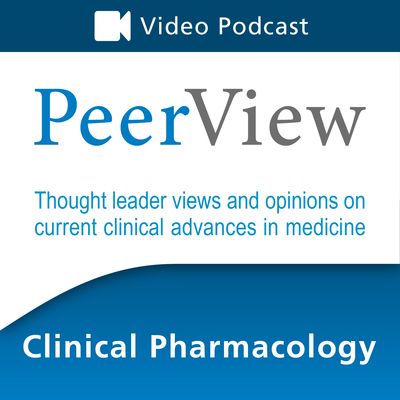PeerView (PVI) is a leading provider of high-quality, innovative continuing education (CME/CE/CPE and MOC) for clinicians and their interprofessional teams. Combining evidence-based medicine and instructional expertise, PeerView activities improve the knowledge, skills, and strategies that support clinical performance and patient outcomes. PeerView makes its educational programming and expert-led presentations and symposia available through its network of popular podcast channels to support specific specialties and conditions. Each episode includes a link to request CME/CE credit for participation. PeerView is solely responsible for the selection of topics, the preparation of editorial content, and the distribution of all materials it publishes.
http://ww2.peerview.com
Matthew S. Johnson, MD, FSIR - Teaming Up to Improve Liver Cancer Outcomes Through Locoregional and Systemic Therapeutic Strategies: A Multidisciplinary Tumor Board Guiding Optimal Care for Patients Along the Intermediate to Advanced Disease Continuum
Go online to PeerView.com/DWV860 to view the activity, download slides and practice aids, and complete the post-test to earn credit. Hepatocellular carcinoma (HCC) is a complex liver malignancy for which a variety of treatment modalities, based on disease stage and patient factors, are available. Traditionally, interventional radiologists (IR) have had a key role in managing intermediate-stage disease through the use of locoregional approaches, while oncologists have employed systemic therapy in the realm of advanced-stage disease. However, an improved understanding of HCC pathology has led to the realization that optimal approaches to selecting, combining, sequencing, and transitioning between different modalities has the potential to improve outcomes across disease settings, underscoring the importance of a multidisciplinary team-based approach to HCC management. As approvals for new drugs (eg, TKIs, antiangiogenic agents, immunotherapy, combinations) and positive clinical trial outcomes with novel multimodal strategies continue to impact the HCC treatment paradigm, clinical decision-making has become complicated, with many questions arising about optimal approaches to administering various therapies to the appropriate patient in a timely manner within a team-based care model. In this CME-certified online activity, a multidisciplinary panel of interventional radiology, hepatology, and oncology experts offers insights on how to navigate the intermediate- to advanced-stage HCC landscape in an era of evolving treatment—from use of modern IR approaches to newer systemic therapies and combination strategies—to provide the most benefit for patients with HCC. Upon completion of this activity, participants should be better able to: Review pivotal clinical evidence on newly available systemic treatment options, including multikinase inhibitors, antiangiogenic agents, and checkpoint inhibitors, for newly diagnosed and previously treated patients with advanced HCC, Examine the potential role of combination systemic therapy approaches (eg, dual immune checkpoint blockade, immunotherapy plus targeted therapy) for advanced HCC, Assess emerging evidence on novel multimodal approaches for intermediate- and advanced-stage HCC, Develop optimal multidisciplinary treatment plans based on available evidence, patient- and disease-related factors, and recommendations on timely transitions from locoregional to systemic options for patients with intermediate or advanced HCC.
